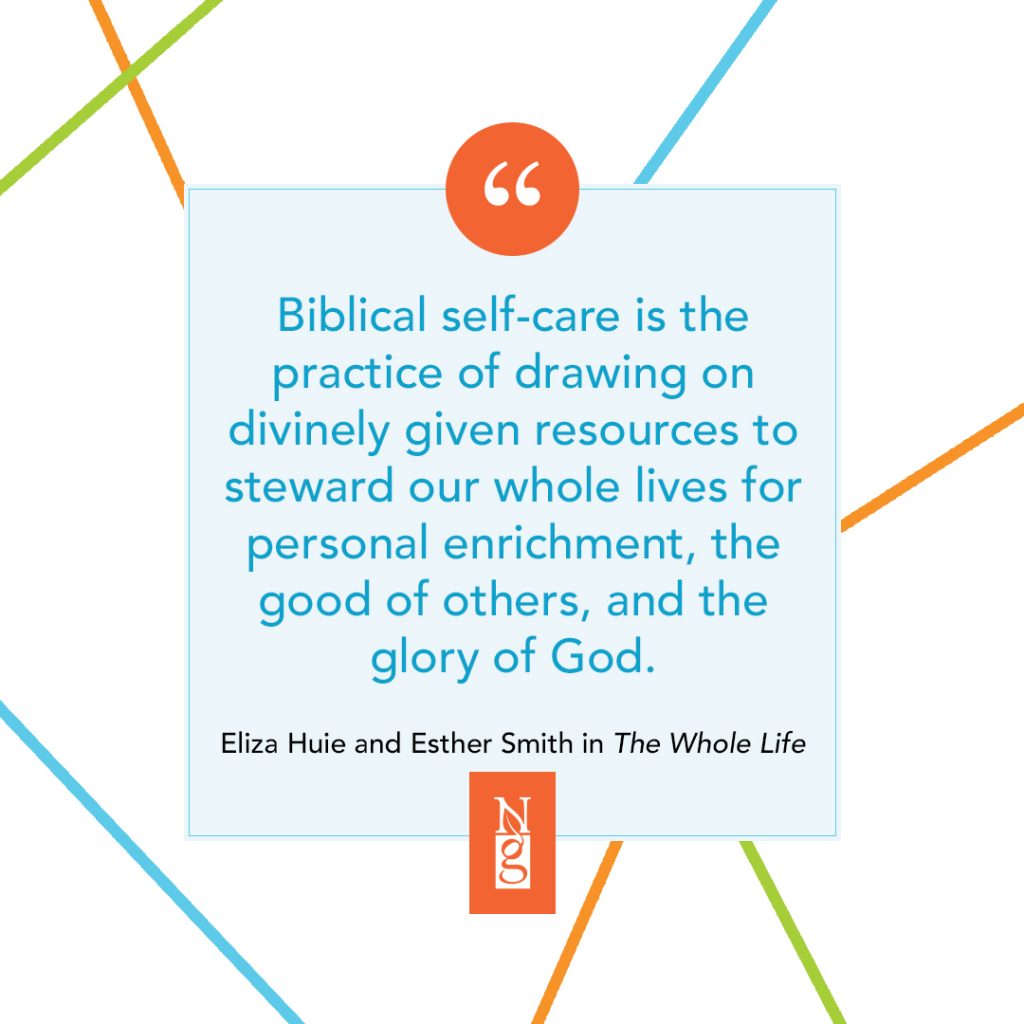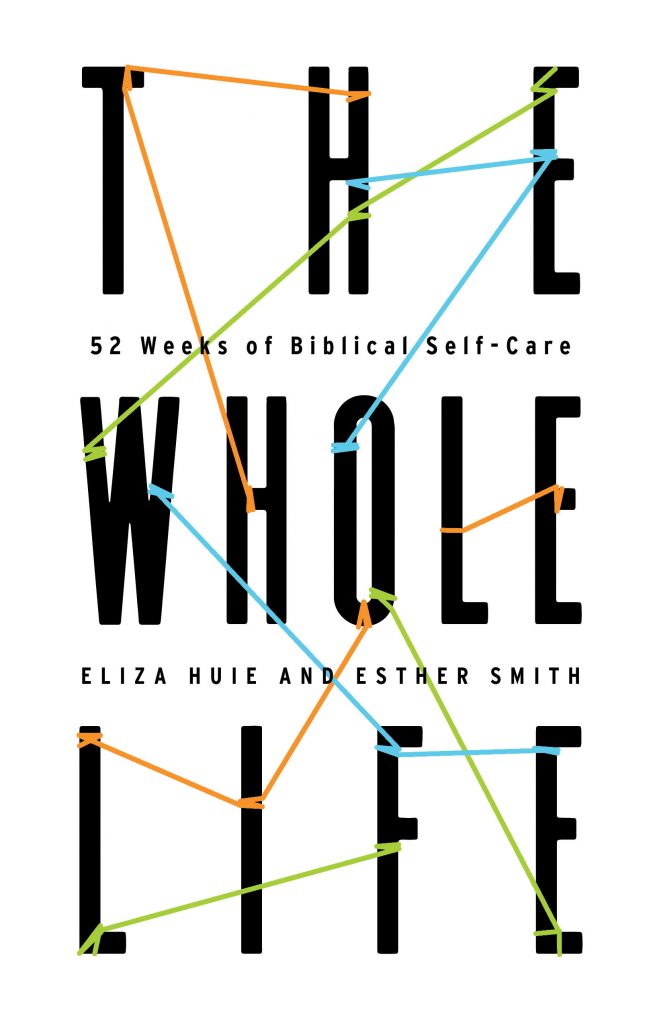The self-care trend
Self-care is defined in the Oxford Language Dictionary as “the practice of taking an active role in protecting one’s own well-being and happiness, in particular during periods of stress.”
Self-care is not a word you are going to find in the Bible. This may be one reason why some Christians pause when they hear it. They may wonder if self-care is a concept in which believers should be investing their time and attention, especially if the goal is mainly “one’s own happiness” and the focus is only on self. Another reason Christians pause may be that self-care seems like a secular fad. It often looks and feels more like the latest trend in pop-psychology or wellness crazes.
There is no doubt that it is a popular topic. In fact, self-care has been one of the top words entered into google searches.[1] It is easy to find articles, retreats, webinars, and loads of social media posts about self-care. This can make it feel like the concept is worldly and even perhaps a distraction to the call of Jesus to take up our cross and follow him.
Avoiding self-care leads to burnout
But this is where we make a wrong turn. As Christians, in effort to avoid what is assumed to be a worldly pursuit, we turn something with essential value into something to avoid. Avoiding self-care does not lead to a more holy life. Avoiding self-care leads to burnout. Pastor and author David Murray defines burnout as “a state of physical, mental, emotional, and spiritual exhaustion caused by living at too fast a pace for too long, or by living with too many stresses in our lives.”[2] Sadly, this definition accurately describes the lives of many Christians today.
A biblical approach to self-care
As a counselor I have sat with many people who were feeling the effects of pushing too hard. Many times, they were giving their all toward good things like service and ministry, yet all the while doing this without the attention to their normal human needs and limits.
This is something I have not only observed but experienced personally. I too have felt the impact of juggling so much that I neglected or ignored refreshment or rest. The care of others, the various ways I was serving in church, and my responsibilities at work and at home took priority over moments of needed pause or rest. Long-term, this pace will eventually take a toll on anyone. A frenetic life is not what God intended for us. God invites us to rest.
God gave us bodies that need care. He gave us souls that need attention. Scripture affirms the reality of human needs and does not discourage meeting those needs. Numerous places in the Bible describe—even encourage—paying appropriate attention to caring for ourselves (1 Kings 19:1–8; Matthew 15:32; Mark 6:31–32; Acts 20:28; Ephesians 5:29).
We need to attend the needs of our whole life. We must take care of our spiritual, emotional, physical, and relational health as stewards of the lives that we are given. With that in mind, consider this definition of biblical self-care.

Whatever God gives us, be it our health, our energy, our time, our resources, and our relationships should be employed for his glory and our good. The gifts of the Lord personally enrich our lives. When we recognize this to be true, we can thank God for the blessings he provides and give him praise for them,
But don’t stop there. We are called to use these same gifts to bless others so that they will have an opportunity to see and respond to the Lord’s goodness. This principle can be seen in 2 Corinthians 9:11 when it says, “You will be enriched in every way, to be generous in every way, which through us will produce thanksgiving to God.” The context of this verse is talking about how our material resources should be used, but it extends beyond material resources. It extends to every way the Lord has blessed us. Use whatever God has given: your health, your energy, your time, your resources, and your relationships to enrich your own life, to bless others, and to glorify God.
Self-care as stewardship
When seen in this way, self-care is an extra-biblical word that contains essential biblical truth. We don’t practice self-care because it is trendy. We practice self-care because it is a biblical concept. The biblical truth is that we are called to steward everything God gives us. So, we embrace self-care to steward our souls, minds, bodies, and relationships. This whole-life stewardship is an act of obedience to God’s call to love others as we love ourselves.
In redefining self-care my hope is that it has encouraged you to consider how you might begin to invest in the care and stewardship of your own life. How might you draw on God-given resources in a way that ensures you are in a much better place to be a blessing to others as you do the work of the Lord? Let me encourage you to start small.
For example, steward your spiritual health by creating a simple daily routine of thanking the Lord for one thing the moment you first wake up. This orients your heart towards the Lord at the start of your day. You can steward your mental and emotional health by taking time to journal or talk with a friend when you notice feeling weighed down by life. Stewarding your physical health in small ways might mean consistently taking your vitamins or drinking more water. It can certainly be more than that, but small acts of self-care go a long way. And finally, stewarding your relational health might simply involve texting a friend to see if you can get together or writing a note of encouragement to somebody whose friendship blesses you. Or maybe it means sharing this article with friend or colleague and seeing if they would be willing to meet up and talk about what you both learned.
Starting small does not equal small results. Little shifts go a long way in avoiding burnout. As you draw on these divinely given resources and steward them for God’s glory, you will begin to see just how important biblical self-care is for your whole life as you seek to run the race God has called you to with endurance rather than exhaustion.
The Whole Life: 52 Weeks of Biblical Self-Care
The Whole Life outlines a balanced life of stewardship, offering practical strategies for Christians to grow in honoring God and caring for others. Eliza Huie and Esther Smith focus on six key areas: faith, health, purpose, community, work, and rest.
[1] Google on Twitter – https://bit.ly/3yYoWfZ
[2] https://www.crossway.org/articles/infographic-the-common-yet-neglected-problem-of-burnout/
Photo by Angelina Kichukova on Unsplash






